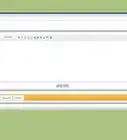This article was co-authored by Jennifer Kaifesh. Jennifer Kaifesh is the Founder of Great Expectations College Prep, a tutoring and counseling service based in Southern California. Jennifer has over 15 years of experience managing and facilitating academic tutoring and standardized test prep as it relates to the college application process. She takes a personal approach to her tutoring, and focuses on working with students to find their specific mix of pursuits that they both enjoy and excel at. She is a graduate of Northwestern University.
There are 11 references cited in this article, which can be found at the bottom of the page.
This article has been viewed 58,289 times.
More and more frequently, entire classes, training for businesses, and personal development courses are conducted entirely online. If you're new to online studying, there are a number of tips and tricks you can use to succeed in learning almost any subject online. If your main study resource for a course or new project is the internet, it's important to develop good study habits, create and stick to a study plan, and make the most of the resources at hand.
Steps
Building Good Habits
-
1Set a daily schedule. Studying at the same time every day creates a habit that helps you focus. Additionally, having set starting and stopping points can make studying seem less daunting. Break down each subject and assignment into small chunks and make a schedule to complete each of these smaller tasks.[1]
-
2Use a specific study place. Set aside an area in your home designated for course work. This makes it easier for you to refocus your attention on studying and avoid distractions. Additionally, using the same space each day lets people you share space with know right away when you are studying. If you find it impossible to study at home without distraction, try to find a good spot at a local library. Libraries are quiet, adequately lit, and free from distractions.[2]
- Choose a space removed from distractions and out of the way of other people.
- Make sure you are comfortable enough to stay in the space for long periods, but not so comfortable you're tempted to fall asleep.
- Use appropriate lighting, so you're able to clearly see any books, notes, or other documents.
EXPERT TIPJennifer Kaifesh is the Founder of Great Expectations College Prep, a tutoring and counseling service based in Southern California. Jennifer has over 15 years of experience managing and facilitating academic tutoring and standardized test prep as it relates to the college application process. She takes a personal approach to her tutoring, and focuses on working with students to find their specific mix of pursuits that they both enjoy and excel at. She is a graduate of Northwestern University.Founder, Great Expectations College Prep
 Jennifer Kaifesh
Jennifer Kaifesh
Founder, Great Expectations College PrepOnce the course starts, be sure to stay on top of the work. Don't assume it's going to be easy just because it's an online course. Oftentimes, these courses require even more discipline to succeed than a standard classroom environment—you have to be proactive and get help from your online teacher or a tutor since there are no class discussions to engage you.
Advertisement -
3Make sure your internet connection is reliable. The biggest mistake students who want to study online make is not investing in reliable, fast internet service. This is essential to access all the necessary documents, course schedules, and other information throughout the class.
- Do your research. Find online specifications for a variety of providers in your area, read reviews from people who use the services, and contact providers to compare pricing.
- Ask fellow classmates who live near you what provider they use and whether or not they would recommend the service.
- At the first signs of trouble (frequently dropped service or slow connection speeds) contact your service provider. If they're unable to provide an adequate explanation and solution, switch to a different service.
- If you're unable to access adequate internet service in your home, go to the school or public library. In most cases, library card holders have access to complimentary internet services through the library. Libraries are also excellent places to study.
-
4Avoid non-study sites. Don't let temptation to visit social media, check email, and click the latest top ten list distract you from studying. Set boundaries for yourself. Use a timer to track time spent on non-course websites, and limit yourself to five minutes at a time. It's good to take breaks, but make sure you're aware of how long you're spending on breaks.[3]
- Turn off your wifi, turn off your phone, or set a "distraction" timer. Make procrastination more difficult than the work itself, and you'll get more done!
- If you need a little extra help with your anti-distraction methods, there are a number of websites and apps that can help. Anti-Social is an app that helps you limit time on social media and other distracting sites. StayFocused is a Chrome-based internet blocker that removes your web access during preset times.
- It's also important to step away every so often. That's where apps like Time Out come in. This app reminds you take a break at set intervals, so you don't push yourself too hard.
Making the Most of Resources
-
1Review the course syllabus, outline, or checklist. It's important to take time to develop a clear understanding of the overall purpose of the course. By reviewing the course outline, you'll be able to prepare for your ongoing studies by understanding how each component relates to the course objectives.[4]
- Review the entire course outline, take notes, and ask questions right away. The goal is to make sure you understand how every section of the course contributes to the overall goal.
- Reassess how assignments fit into the overall outline of the course throughout the class. This is especially beneficial if you feel frustrated or are struggling with any specific assignment.
- Track changes to the course syllabus carefully. Most instructors provide adequate notice, if there are syllabus changes, but check-in at least once a day to make sure there's nothing new.
-
2Learn to use online course tools. Most online courses offer a variety of options for communicating with instructors and classmates, as well as storing and organizing information. Before the class starts, take about an hour to explore the entire course system online. This will help you be more prepared to successfully complete tasks associated with the course such as turning in assignments, communicating with peers, and taking tests.
- If you have questions, read any help or user manuals that should be accessible as part of the system. Typically, these are designated with a question mark, light bulb icon, or a “help” tab.
- If you're interested in finding out specifically how the system will be utilized for your course, review the syllabus and talk to the instructor for more course-specific information.
-
3Find accurate reference sites. If you can, use online resources that are sponsored by a university, library, or government agency. If you are taking a course online, you will likely have access to many reference sites as part of the class. However, by taking a few moments to review the source, author, and other information, you can determine the accuracy and legitimacy of any online resources.[5]
- Double check accuracy by comparing facts across websites. If you find the same statistics or information on numerous websites, it's likely the resource you're using is accurate.
- Find out who maintains the site. Blogs are one example of typically inaccurate or opinion-based websites, but if the blog is part of a professional organization or written by an expert in the field, they may be trustworthy resources.
- Avoid sites that are selling a product. Even if the information from these online resources seems authoritative they are likely skewed to support the sale of a product.
- Check the date on all resources. If the site was accurate ten years ago but hasn't been updated since, it's likely no longer a reliable source of information.
-
4Communicate with professors. One of the many benefits of online learning is almost instant access to teachers and other students. Most online courses and trainings include a chat application, discussion forum, and email communication with professors and other students. Take advantage of this ease of communication, and don't hesitate to ask questions.[6]
- Try not to ask the professor for information readily available in the syllabus or other course materials. Check these resources first, and verify with the instructor, if necessary.
- Let the professor or course leader know right away if you're struggling to understand the materials. They can offer guidance, and direct you towards helpful resources.
- If you experience a personal or professional concern that affects your ability to keep up with the course, talk to the professor right away. You may be able to adjust your course schedule, and make up assignments at a later date.
-
5Make use of online library resources. If you're taking an online course through a local secondary school or university, you should have access to library resources online. If not, talk to your local public library about online reference materials. Libraries offer students free access to a number of professional journals, periodicals, and search tools that could otherwise cost hundreds or thousands of dollars each year.
- Visit the library's website and search for any login or access instructions. If you already have a library card, you may be able to access the information right away. Contact the school library. Ask what the process is to gain access to online resources.
- Ask if there is a librarian who specializes in the topic you're studying. These librarians offer assistance in fully utilizing the library's resources and information on that subject.
- If you're taking a course for professional or personal development, you may not be doing so through a school. In this case, you should visit the website and reach out to librarians at your public library.
-
6Participate in online discussions. Many web-based courses require group discussions or forums. Even if group discussions are not mandatory, participation gives you another opportunity to evaluate what you're learning. Listening and responding to the perspectives of others is a great way to develop your own knowledge.[7]
- Read blogs that your peers or professors write. If you're feeling extra confident about the material, you can even start your own blog.
- Participate in webinars. Watch them, but also ask questions, take notes, and make them an effective use of your time.
-
7Print off documents. If you're worried that you'll lose information or study better with a physical document, don't hesitate to print out online resources. Some students simply learn better when they're able to hold a document, mark and underline text, and otherwise interact with resources. For these types of learners, printing a physical copy may be beneficial.
Studying Effectively
-
1Create a personalized course outline. Your instructor should provide an overview of the course that may come in the form of syllabus or list of course objectives. However, taking the time to create your own outline can help you better understand the main concepts as well as incorporate the course schedule into your personal and professional schedules.
- Make the outline fit your existing schedule. Start with any syllabus, checklist, or concept overviews provided by the instructor, and add details like, “I'll need to do the assignments for week 5 in advance because I'm out of town that week.”
-
2Take notes. Whether you use your computer, tablet, or a physical pen and paper journal, keeping notes on readings, reference materials, and classes is a great way to better understand and remember what you study. If you take notes on a computer or tablet, they will be easy to search later, when you're looking for specific information. If you prefer writing notes on paper, take time to keep them organized, so you'll be able to find the information you need quickly.[8]
-
3Read carefully. Whether you're completing readings that are assigned for the whole class or you're studying articles and resources independently, take time to carefully read, evaluate, and comprehend. The goal should be to only read a document one time, and have a basic understanding of the main concepts following this reading.[9]
- Highlight, underline, or make margin notes. This allows you to quickly find the information that is most important. You can do this on your computer or tablet using most eBook applications, if you don't have physical copies of the materials.
- Rephrase the big ideas in your own words. Imagine you're explaining the main idea of each section to someone who isn't studying the same subject you are, and provide a short, clear synopsis of the information. This can be done in writing or mentally as you go along.
EXPERT TIPJennifer Kaifesh is the Founder of Great Expectations College Prep, a tutoring and counseling service based in Southern California. Jennifer has over 15 years of experience managing and facilitating academic tutoring and standardized test prep as it relates to the college application process. She takes a personal approach to her tutoring, and focuses on working with students to find their specific mix of pursuits that they both enjoy and excel at. She is a graduate of Northwestern University.Founder, Great Expectations College Prep
 Jennifer Kaifesh
Jennifer Kaifesh
Founder, Great Expectations College PrepSet a reasonable pace for yourself. If you study too quickly, you likely won't comprehend or retain the information, but if you study too slowly, you'll likely forget information as you move from unit to unit.
-
4Test yourself. At the end of every chapter or section, take a few moments to test whether or not you've retained the knowledge. Most course manuals will include quizzes or tests. If not, you can search for practice tests on a variety of subjects online. Another simple way to test your knowledge on the material you cover is to review each heading in your readings and mentally summarize the content and main concepts of that section, making notes when necessary.[10]
-
5Plan ahead. If you'll be busy or out of town when an assignment is due, complete the course work in advance. Set deadlines for yourself to complete work before it's due, and whenever possible, complete work beyond these deadlines to stay ahead and make it easier to keep up with assignments.[11]
Community Q&A
-
QuestionWhen I study, I frequently go to websites that get me distracted. What should I do because I study online?
 Kinda NawfalCommunity AnswerUse an extension like Block Site. You can block all distracting sites for 25 minutes and then get a 5-minute break.
Kinda NawfalCommunity AnswerUse an extension like Block Site. You can block all distracting sites for 25 minutes and then get a 5-minute break. -
QuestionHow do I prevent myself from going to other sites when I am doing online studying?
 Manavi ManjunathCommunity AnswerIt is a common issue with many students. However, one cannot let this distraction get the better of herself. It is advisable to block the sites. Additionally, use whatever resources available to you to make the classes more enjoyable. For example, if you are interested in art you can use highlighters or colour pencils to underline notes. This will help.
Manavi ManjunathCommunity AnswerIt is a common issue with many students. However, one cannot let this distraction get the better of herself. It is advisable to block the sites. Additionally, use whatever resources available to you to make the classes more enjoyable. For example, if you are interested in art you can use highlighters or colour pencils to underline notes. This will help.
References
- ↑ https://learningcenter.unc.edu/tips-and-tools/studying-101-study-smarter-not-harder/
- ↑ https://www.youthcentral.vic.gov.au/study-and-training/help-with-study/how-to-study-better/top-10-study-tips
- ↑ https://www.vu.edu.au/about-vu/news-events/study-space/6-ways-to-avoid-social-media-distraction-while-learning-online
- ↑ https://learningcenter.unc.edu/tips-and-tools/metacognitive-study-strategies/
- ↑ https://guides.lib.uw.edu/research/faq/reliable
- ↑ https://courses.lumenlearning.com/suny-mcc-cos2master/chapter/working-with-instructors/
- ↑ https://www.northeastern.edu/graduate/blog/tips-for-taking-online-classes/
- ↑ https://learningcenter.unc.edu/tips-and-tools/effective-note-taking-in-class/
- ↑ https://success.oregonstate.edu/learning/reading
About This Article
To study online, start by setting aside a time and place, like the library, to study so you can focus and keep others from disturbing you while you work. Additionally, use the class syllabus to create your own study schedule, including due dates and what will be covered in class each week. As you study the material, use your computer or pen and paper to take notes, which will help you stay organized and remember the information. When you finish a chapter, quiz yourself using the practice tests in the book so you know what you need to focus on. For tips on how to use the library’s online resources to help you study, read on!














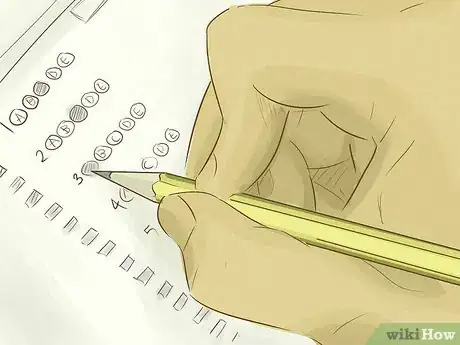

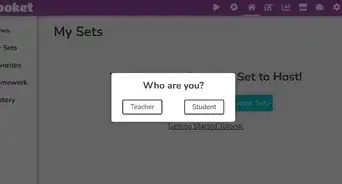
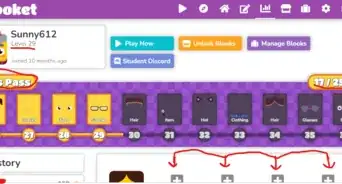
.webp)










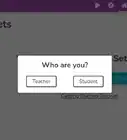
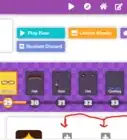
.webp)
